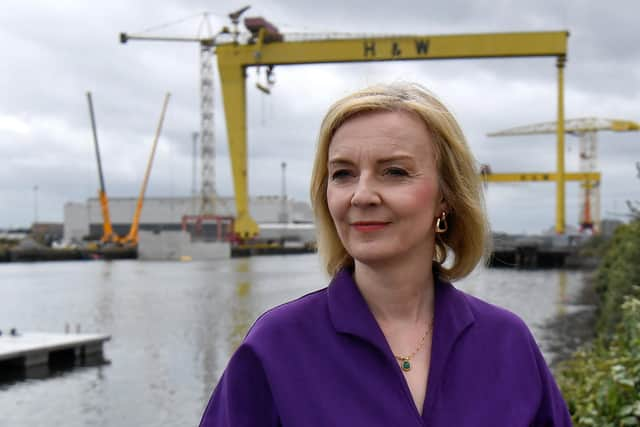Bad relations with France and the EU make little sense
and live on Freeview channel 276
Single payments will come early, prices have risen to reflect higher costs, but not by as much as needed, and agriculture should gain from a growing awareness with consumers that food security is vital.
However like all the best film scripts there is something lurking that could blow any sense of optimism off course and that is events on European fertiliser markets. The last UK ammonia production facility closed a few weeks ago, apparently for good, because gas prices made it uneconomic. This week we saw another example of the squeeze the EU is in because of years of reliance on Russian gas.
Advertisement
Advertisement
The main pipeline to Germany and the EU was ‘turned off’ for three days this week, allegedly for maintenance. No-one believes this explanation and in reality Russia was showing Europe its power to create misery this winter. In the words of the French prescient, Emmanuel Macron, this was Russia moving from using food to including gas as a weapon of war.


As a new prime minister heads for Downing Street they must be looking at events in Europe and pondering how naïve was the decision they were part of to go down an ultra-green energy road.
This reduced UK gas storage capacity and saw offshore gas sources discarded in favour of wind. The leadership front-runner, Liz Truss, has said she cannot make up her mind whether the French president is a friend or foe – presumably just as she could not decide whether she was in favour of or against Brexit. Bad relations with France and the EU make little sense when the UK has similar energy supply problems around gas and is dependent on electricity from French nuclear plants to keep the lights on in England this winter.
The three-day closing of the Nord Stream gas pipe from Russia this week was a reminder to the EU of its vulnerability as we move into the autumn. The European Commission and member states have already announced gas rationing measures until at least March, although these are still a bit of a fudge that can only get worse. There must be a lot of collective prayers being said across the EU that the long, hot summer does not give way to a long, cold winter. That would cause a crisis with authorities forced to choose between energy for industry or consumers.
Advertisement
Advertisement
The gas issue is where the threat to not only fertiliser prices but availability comes from. With Russia out of the supply equation and global demand for fertilisers high and rising Europe’s supply problems are our problems, regardless of Brexit. The trade body in Europe that represents fertiliser manufacturers says much of its production has been stopped or significantly cut back, because the price of gas makes it uneconomic. It claims still rising gas prices are 1000 per cent up in a year, far beyond the rise for consumer markets. The trade body, Fertilisers Europe, reckons 70 per cent of production has been curtailed, because gas is responsible for 90 per cent of the industry’s variable costs. These are increases that cannot be absorbed or passed on to a market already groaning under the weight of fertiliser costs. This has prompted the trade body to describe the European gas supply structure as broken.
This may be sabre rattling at a time when demand is seasonally off its peak. But there is no escape from the reality of what the trade is saying, or from those high gas prices and the lack of alternatives because Russia is out of the equation. The industry says Europe and individual member states must act by financially supporting fertiliser production as the basis of a secure food supply. It says moving away from dependence of Russia cannot be achieved by closing fertiliser capacity in Europe, with no realistic alternative supply sources. It is warning of the consequences for farmers, for food security and for consumers. It is right to do so and to press for fertiliser manufacturers to be given priority access to gas. A new UK prime minister must decide whether they will be part of any EU fertiliser initiative when they have spent weeks threatening Brussels with a tougher line and a trade war.